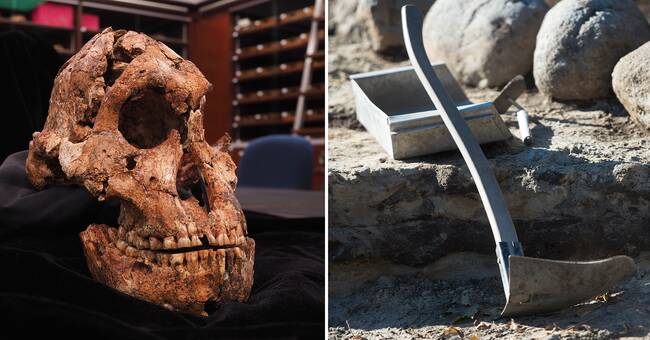The skull belongs to the species Paranthropus robustus and is described as a cousin of Homo erectus, the species from which humans are descended.
The discovery of the fossil is described as incredibly exciting, writes the BBC.
"Most fossils we find are a single tooth here and there, so finding something like this is very unusual and very fortunate," said Dr Angeline Leece, who worked on the find to the BBC.
Found in South Africa
Two researchers from La Trobe University in Melbourne discovered the skull fragments at the Drimolen excavation site outside Johannesburg in South Africa in 2018.
During the two years that have passed, archaeologists have been working on putting the puzzle together and analyzing the fossil, and the findings have now been presented in the journal Nature, ecology and evolution journal.
The discovery of the skull is an unusual find and could open doors to research on human development, according to Jesse Martin, one of the researchers who worked with the skull.
Herbivore
Paranthropus robustus had large teeth and a small brain, and that it mainly ate food from the plant kingdom, unlike its contemporary cousin Homo erectus, which had small teeth and a large brain and ate both meat and plants.
The researchers believe that it is possible that the then climate changes may have reduced the availability of food for Paranthropus robustus and that this may be the reason why it died out earlier than Homo erectus.

